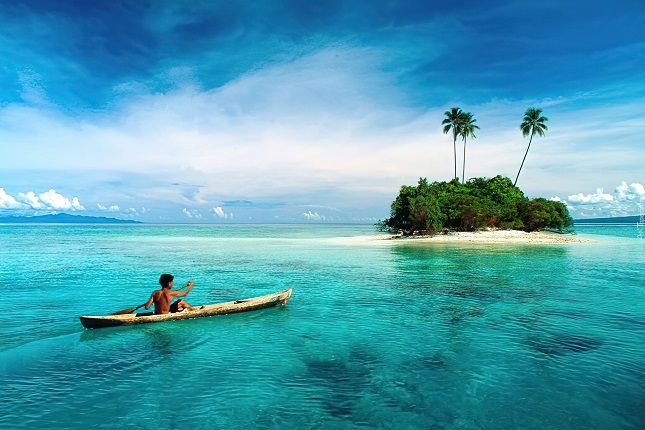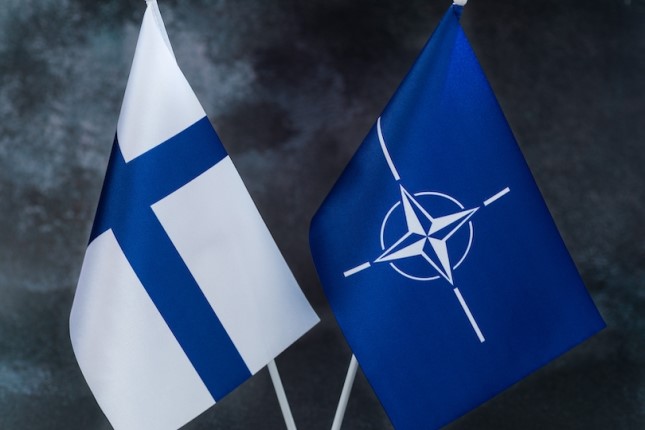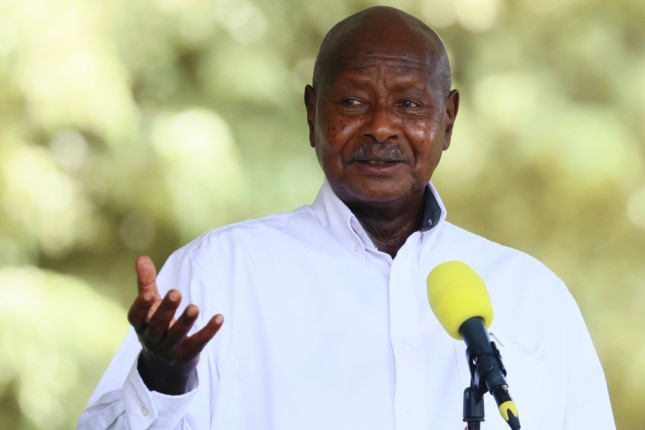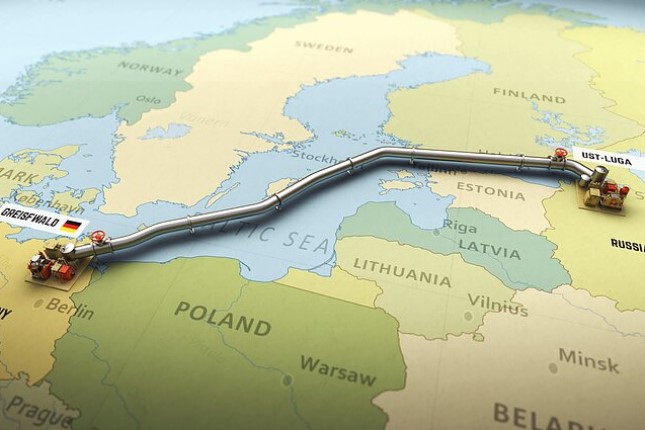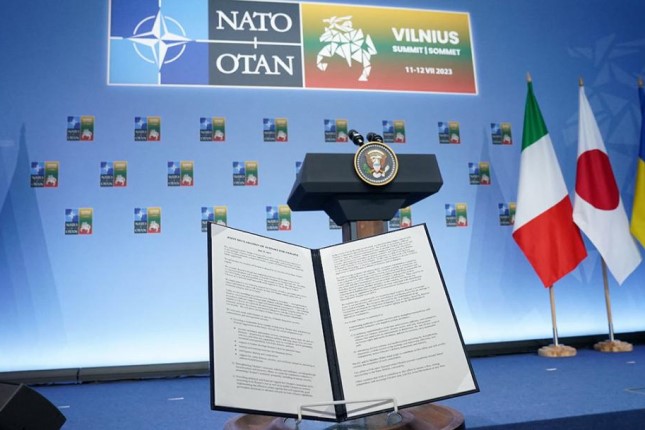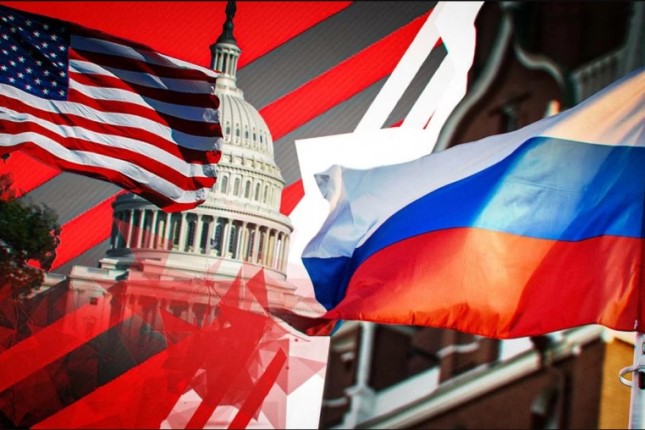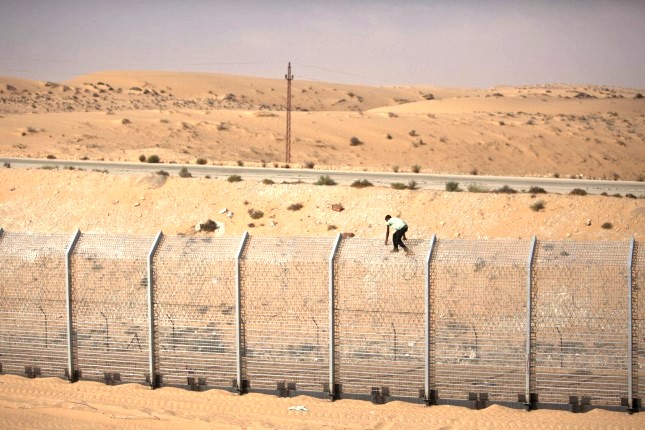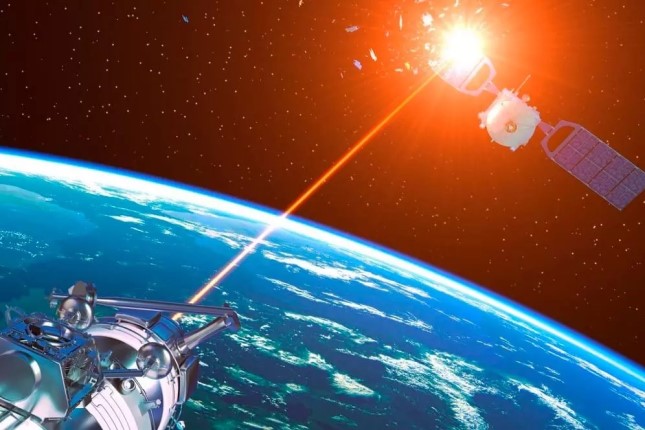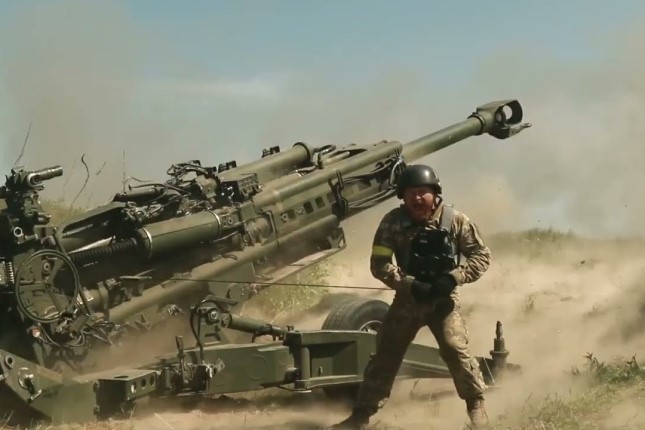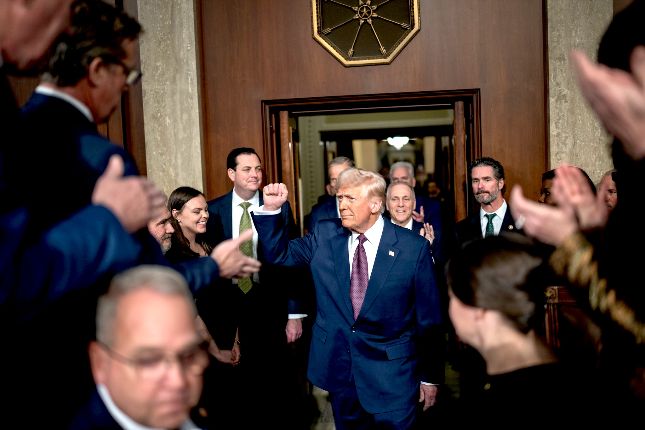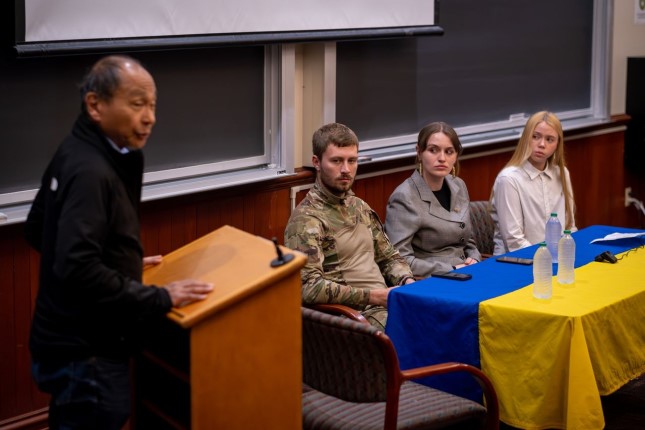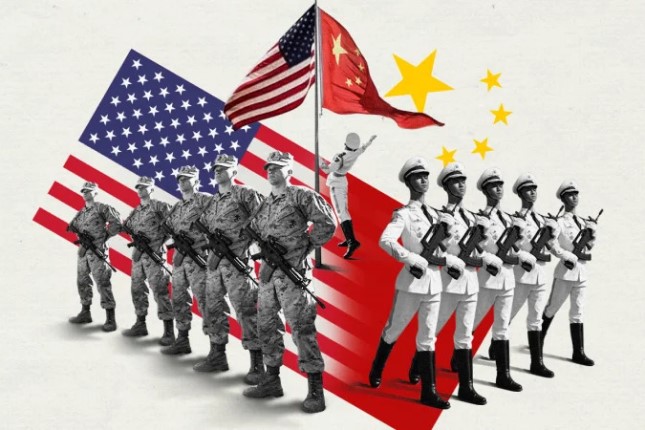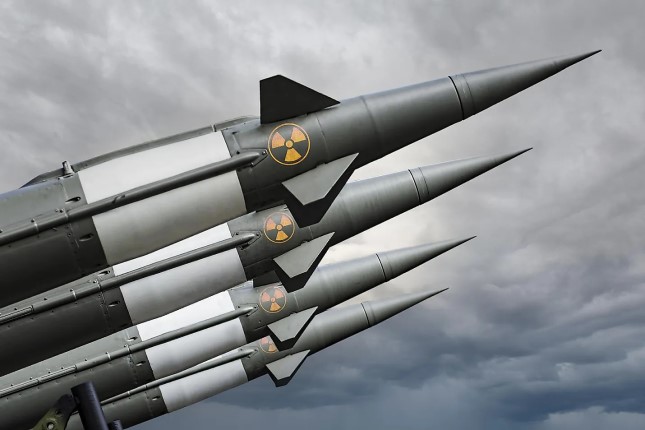Late in August, Solomon Islands, a small nation in Oceania, banned all foreign navy ships from its ports. The country's government announced the moratorium shortly after its shocking and unprecedented decision to ban US and British patrol ships from docking at Honiara, the nation's capital. An exception was made "one last time" for the US hospital ship Mercy. According to Solomon Islands' authorities, the foreign navy vessels were denied entry because they failed to provide appropriate information and obtain diplomatic clearance on time.
The moratorium introduced by Solomon Islands has created quite a stir in the media, considering that Western powers have always felt quite at home in Oceania. The news outlets were quick to conclude that Honiara neglected democracy and was about to plunge into authoritarianism. At the same time, the press accused China of setting up a military base "on Australia's doorstep" and trying to end the days of "a free and open Indo-Pacific region".
The small island nation is trapped between the hammer and the anvil: on the one hand, it badly needs Chinese investment; on the other, the country also has to maintain stable relations with its regional neighbours. Solomon Islands is trying hard to steer clear of any serious conflict, but the odds appear to be stacked against Honiara. In fact, Oceania is likely to re-emerge as an arena of military confrontation among major powers on a much larger scale than 80 years ago, during World War II.
Map showing Solomon Islands. Photo: flosspapers.org
Impoverished and largely unknown in Europe, except for oceanologists, Solomon Islands has suddenly found itself in the spotlight of global politics. This is primarily due to the country's recent rapprochement with China. Specifically, it began in 2019 when Honiara ended its long-standing relationship with Taiwan in favour of establishing diplomatic ties with Beijing.
Since then, China has been pouring money into the Solomons. It is worth remembering that many of the island nation's 700,000 inhabitants still live in huts with palm leaf roofs and use cowrie shells as currency in remote areas. With the advent of Chinese capital, construction work is underway on a number of infrastructure projects ranging from sports facilities to broadband telecommunication towers. In addition, 30 local airfields are to be upgraded. According to Australian media, significant sums of money – at least by local standards – have lined the pockets of local government officials and MPs.
In April 2022, Beijing decided to protect its investments in the Solomons, an unstable nation that saw civil unrest and ethnic violence in the late 1990s and early 21st century. It was announced that the two countries would sign a security agreement. In line with this treaty, China is supposed to be able to send its police and military personnel to Solomon Islands "to protect Chinese projects and help maintain social order".
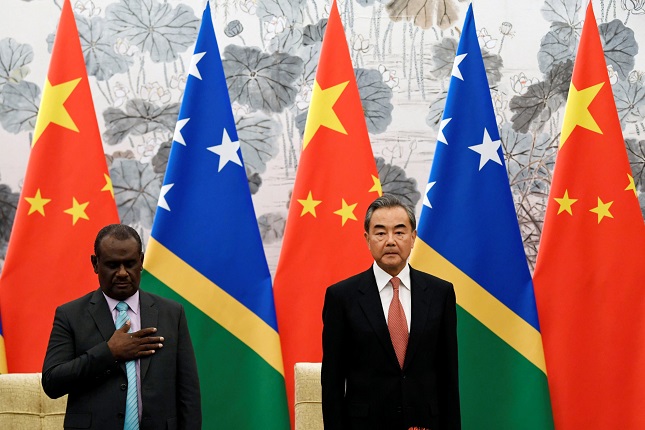
Chinese State Councilor and Foreign Minister Wang Yi and Solomon Islands Foreign Minister Jeremiah Manele listen to the Solomon Islands' national anthem during a ceremony to mark the establishment of diplomatic ties between the two nations at the Diaoyutai State Guesthouse in Beijing, China, September 21, 2019. Photo: Naohiko Hatta / Pool via REUTERS.
The prospect of facing Chinese security forces in the Solomons has angered Australia and New Zealand for two reasons. Firstly, both countries have long considered the island nation as their private hunting grounds. Secondly, in 2017 Australia signed a similar treaty with Solomon Islands that allowed Australia to deploy its police force.
Both Australia and New Zealand are concerned that China may expand its military presence in the Solomons by establishing a naval base "in the backyard of Australia and New Zealand" and in proximity to their shores, 2,000 and 3,500 kilometres, respectively. Presumably, Solomon Islands banned all foreign warships from its ports to placate the nervous Australians, New Zealanders and Japanese, but the moratorium had the opposite effect.
China is indeed interested in establishing a military base close to Australia and New Zealand, practically "in the rear" of AUKUS, a new military alliance in the Indo-Pacific. For a start, Beijing needs to keep an eye on Australia's military activity, considering that Australia is replacing Britain as America's primary ally in the new geopolitical set-up. As a result, the US plans to provide Australia with the latest military technology and weaponry. In addition, an island base in Oceania may help China to expand its presence in other states of the region.
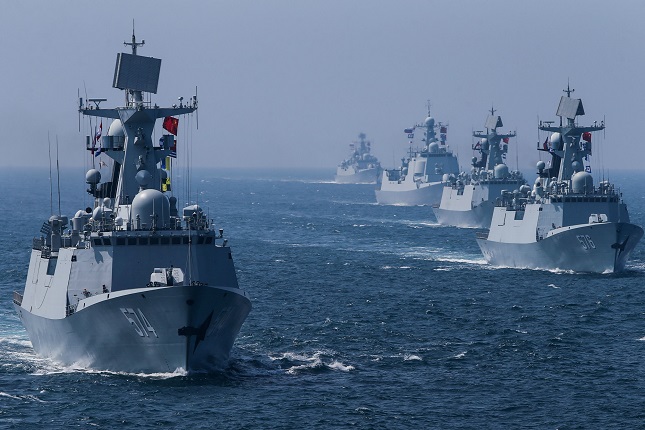
China is on course to build the world's largest navy. Photo: wordpress.com
With abundant financial resources at its disposal, China can easily purchase some outlying islands and use their territory to build runways for warplanes and mooring facilities for navy transport ships. Clearly, this is unacceptable to the United States, which is used to reigning supreme in the region, and Japan, which has been considering strategic cooperation projects with Australia, including jointly-operated artificially-built territories under Australia's jurisdiction.
If this trajectory continues, Oceania may turn into a battleground once again. During World War II, the Solomons were partially occupied by Japanese forces. Fighting in the Solomons was some of the fiercest in the Pacific. When US and British forces finally drove the Japanese out, many local settlements were razed to the ground.
